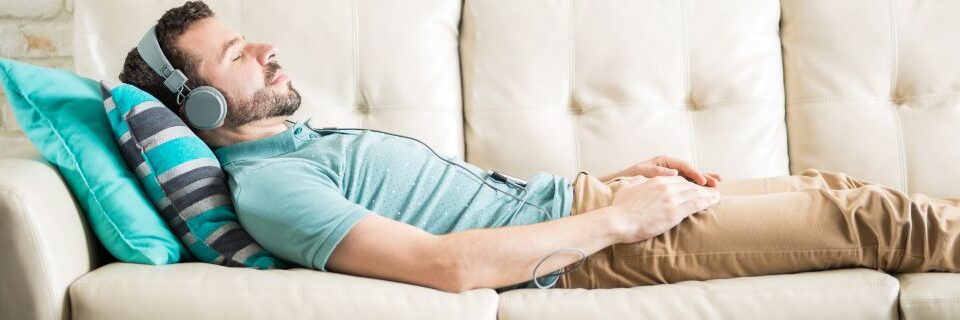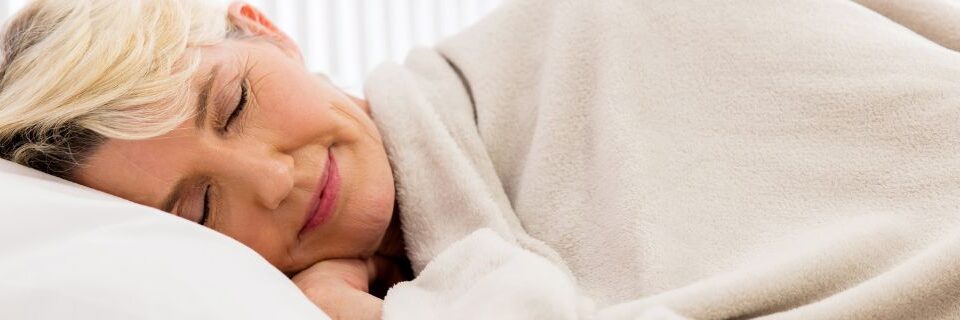
What Is Sleep Apnea?

Do You Have Sleep Deprivation? Causes, Symptoms, and Solutions
Table of Contents
Sleep insomnia affects millions of people around the world. Insomnia can have negative effects on our physical, mental, and emotional wellbeing. There are many treatments that can provide relief, including sleep hypnosis. Here’s what you need to know about current treatment options that will help you get the rest your body needs.
What Is Insomnia?
The International Classification of Sleep Disorders (ICSD) defines it as a difficulty initiating or maintaining sleep, a perception of poor sleep quality or waking up too early for at least four weeks.
Some people don’t take sleep insomnia seriously, and others downplay the importance of sleep. This is a dangerous attitude. Chronic sleeplessness increases your risk for many conditions, including:
- Inability to concentrate.
- High blood pressure.
- Mental health disorders, including depression and anxiety.
- Pregnancy complications.
- Weak immune system.
- Metabolic problems.
What Causes Insomnia?
Sleepless nights can affect anyone. Here are some common factors that can lead to insomnia.
- Stress: This is the most common cause of insomnia. Worries about work, money, relationships or other life issues can disrupt your ability to sleep.
- Medical conditions: People with cancer, diabetes, heart disease, overactive thyroid and Alzheimer’s disease often have sleep disorders.
- Lifestyle factors: Consuming copious amounts of alcohol is not good for your sleep. Some people use alcohol to “pass out,” but this is an illusion. You don’t get deep, restorative sleep from passing out.
- Medications: Some prescription drugs can interfere with your ability to sleep. These include antidepressants and medications for high blood pressure.
- Caffeine: Consuming caffeine, nicotine and other stimulants can interfere with your sleep. Caffeine stays in your system for about four hours.
- Mental health disorders: People who suffer from anxiety, depression and post-traumatic stress disorder (PTSD) often have difficulty sleeping.
Treatments for Insomnia
In cases of chronic insomnia, doctors may prescribe sleeping pills. These can be addictive, however, so many people prefer natural, nonmedical treatments for their sleep problems.
How well do these treatments work? Let’s find out.

Nonmedical Treatments for Insomnia and Sleep Problems
Many people use sleep hypnosis audios, herbal teas and supplements as sleep aids. Although these treatments are popular, it’s not clear how well they work.
Herbal Treatments: What Does the Science Say?
Australian researchers conducted a meta-analysis of studies that looked at common herbal treatments used to induce sleep. Here is what they found out.
- Valerian: This supplement is safe, but studies of its efficacy as a sleep aid are inconclusive.
- Valerian and hops: This combination shows promise for improving sleep, but the results are not conclusive.
- Chamomile: This common herb is safe and works well to relieve anxiety and mood disorders. It also helped menopausal women sleep, but it’s not clear if it can help others.
- Lemon balm: There are not enough studies to arrive at any conclusions about its effectiveness.
- Lavender: The studies are not good enough to decide if it works.
- Kava-kava: This herb is a popular sleeping drink in some cultures. It can help people sleep, but it has too many negative side effects to be recommended as a sleep aid.
Hypnosis and Self-Hypnosis
Hypnosis has shown promise as a sleep aid. In one study, hypnotic relaxation was used on 45 subjects, and the hypnosis for sleep treatment “was effective in helping subjects go to sleep more quickly.”
In another study, researchers used hypnotherapy to treat patients with anxiety disorders and chronic insomnia. They reported that hypnotherapy was effective at reducing symptoms of anxiety and helping these patients sleep.
Sleep Hygiene
Many doctors and mental health experts agree that sleep hygiene is an important part of the treatment for insomnia. Practicing good sleep hygiene means creating an environment that is conducive to deep, restful sleep.
Some principles of good sleep hygiene are:
- Sleep in a comfortable bed. Use a good mattress with fresh, clean sheets and sufficient pillows.
- Keep a sleep schedule.
- Turn off all televisions, computer monitors and video screens at least an hour before you go to bed.
- Avoid heavy meals or excessive alcohol at bedtime. Drink herbal tea or warm milk instead.
- Take a warm bath right before bedtime.
- Mentally prepare yourself for sleep each evening by winding down mentally and physically.
- Get some exercise daily. People who exercise regularly are less likely to experience insomnia.
Get Some Sleep
If you’re suffering from insomnia, help is available. Start by making some lifestyle changes, reducing your stress levels and practicing good sleep hygiene with a digital hypnotherapy app like UpNow. If you’re still having problems, talk to your doctor.
UpNow Health only uses high-quality sources, including peer-reviewed articles, to support the facts within our articles. All our articles are reviewed by experts to ensure that our content is accurate, helpful, and trustworthy.
1. American Academy of Sleep Medicine. The International Classification of
Sleep Disorders, 3nd ed. Westchester, IL: American Academy of Sleep Medicine, 2014. https://learn.aasm.org/Listing/a1341000002XmRvAAK
2. Josefine Antoniades, Kay Jones, Craig Hassed, and Leon Piterman. Sleep…Naturally: A Review of the Efficacy of Herbal Remedies for Managing Insomnia. Alternative and Complementary Therapies 2012 18:3, 136-140. https://www.liebertpub.com/doi/abs/10.1089/act.2012.18310
3. Stanton, H. E. (1989). Hypnotic relaxation and the reduction of sleep onset insomnia. International Journal of Psychosomatics, 36(1-4), 64–68. https://psycnet.apa.org/record/1990-15352-001
4. Irina Holdevici. Relaxation and Hypnosis in Reducing Anxious-depressive Symptoms and Insomnia among Adults. Procedia – Social and Behavioral Sciences, Volume 127, 2014, Pages 586-590, ISSN 1877-0428. https://doi.org/10.1016/j.sbspro.2014.03.315. (https://www.sciencedirect.com/science/article/pii/S1877042814024069)
5. Reichner, C. A. (2015). Insomnia and sleep deficiency in pregnancy. Obstetric Medicine, 8(4), 168–171. https://doi.org/10.1177/1753495X15600572
6. Yu-fang Lin, Zhi-dan Liu, Wen Ma, Wei-dong Shen. Hazards of insomnia and the effects of acupuncture treatment on insomnia. Journal of Integrative Medicine, Volume 14, Issue 3, 2016, Pages 174-186, ISSN 2095-4964. https://doi.org/10.1016/S2095-4964(16)60248-0. (https://www.sciencedirect.com/science/article/pii/S2095496416602480)
7. Wendy M. Troxel, PhD, Daniel J. Buysse, MD, Karen A. Matthews, PhD, Kevin E. Kip, PhD, Patrick J. Strollo, MD, Martica Hall, PhD, Oliver Drumheller, EdD, RRT, Steven E. Reis, MD, Sleep Symptoms Predict the Development of the Metabolic Syndrome, Sleep, Volume 33, Issue 12, November 2010, Pages 1633–1640, https://doi.org/10.1093/sleep/33.12.1633
8. Brice Faraut, Karim Zouaoui Boudjeltia, Michal Dyzma, Alexandre Rousseau, Elodie David, Patricia Stenuit, Thierry Franck, Pierre Van Antwerpen, Michel Vanhaeverbeek, Myriam Kerkhofs. Benefits of napping and an extended duration of recovery sleep on alertness and immune cells after acute sleep restriction, Brain, Behavior, and Immunity, Volume 25, Issue 1, 2011, Pages 16-24, ISSN 0889-1591, https://doi.org/10.1016/j.bbi.2010.08.001. (https://www.sciencedirect.com/science/article/pii/S0889159110004265)
9. A. Wilder-Smith, F.B. Mustafa, A. Earnest, L. Gen, P.A. MacAry. Impact of partial sleep deprivation on immune markers. Sleep Medicine, Volume 14, Issue 10, 2013, Pages 1031-1034, ISSN 1389-9457, https://doi.org/10.1016/j.sleep.2013.07.001. (https://www.sciencedirect.com/science/article/pii/S1389945713002323)











